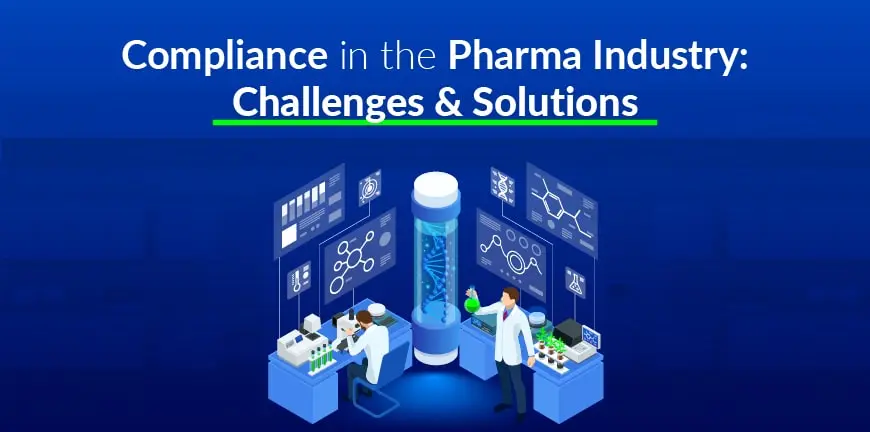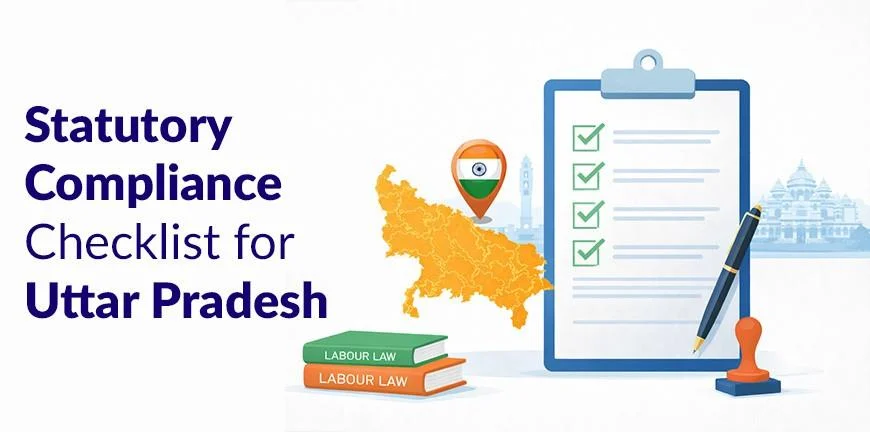
Top 8 Benefits of Hiring Apprentices for Employers
16/07/2024
8 Tips to Market and Promote Apprenticeship in Your Company
17/07/2024Compliance in the Pharma industry is crucial to maintain the authenticity of the sector. However, it happens to also be one of the most heavily regulated industries in the world, and rightfully so, as the safety, efficacy and impact of medicines and treatments have a great impact on lives.
What is the Importance of Compliance in Pharma Industry?
Pharma compliance is essential for various reasons in the pharma industry. Some very significant reasons why maintenance of compliance in the pharma industry are –
1. Public health protection
Compliance ensures that the medicines and treatments are safe and avoids adverse effects. Ensuring the right labelling and advertising on the medicines is a part of maintaining compliance. Additionally, it also gives patients the required information about the medicines they consume.
2. Upholding the reputation and integrity of the industry
Compliance is an integral part of maintaining the reputation of the industry. It helps build customer trust and instil confidence in healthcare professionals and stakeholders. Non-compliance leads to scandals, damages company reputation and leads to loss of trust.
3. Meet ethical and legal standards
As a healthcare/pharma industry, maintaining ethical standards is their foremost responsibility as the stakes are high. They have an ethical obligation to ensure that the medicines they prescribe and administer causes no harm to contribute to positive health.
4. Eliminate fines and penalties
Pharma companies must comply with regulations and rules set by certain bodies like FSSAI etc and other authorities to legally market their medicines. Non-compliance can cause the company to face severe penalties and fines, bans, etc which could hurt the company’s financial reputation.
5. Ensure product quality
It’s extremely important to adhere to good manufacturing practices to ensure that the medicines are consistently produced according to quality standards.
6. Financial Implications
Maintaining a 100% compliance instils a sense of confidence in insurers and investors leading to better capital investment and also helps prevent any litigations or legal problems for your company.
Pharma compliance controls various areas of business, like research and development, clinical trials, manufacturing, marketing and sales and distribution.
What is Regulatory Compliance in Pharma Industry?
Regulatory compliance refers to adherence to laws, regulations and guidelines set out in the pharma industry governing the development, production, marketing and distribution of pharmaceutical products. The regulations are set out by government bodies to make sure the products produced and distributed are safe, effective and are of the highest quality.
Compliance Requirements for Pharmaceutical Companies
Some of the key aspects of regulatory compliance in the pharma industry are-
1. Good Manufacturing Practices (GMP)
Legally, pharma companies follow GMP guidelines set by the CDSCO under the Drugs and Cosmetics Act, 1940. For the consistent production and control the quality of products there are certain regulations that manufacturers must abide by, these are known as the GMPs. GMPs minimize the risks involved in pharmaceutical production and also covers all the aspects of production including raw materials, facilities, equipment, training of staff.
2. Price control compliance
Controlling the prices of medicines, treatments etc in the pharmaceutical industry, is usually governed by the DPCO (Drug Price Control Order) and is further monitored by the NPPA (National Pharmaceutical Pricing Authority). The DPCA’s primary focus is ensuring that the prices of the medicines are affordable. The NPPA on the other hand, is responsible for fixing prices that are affordable and revising them if required of bulk drugs and formulations. Companies are required to submit detailed reports about their pricing structures and adhere to the fixed prices.
3. Environmental Compliance
Reducing the ecological footprint is a priority for all companies alike. Stringent environmental regulations must be in place to reduce carbon footprint. Government bodies like Ministry of Environment, Forest and Climate Change are responsible for setting certain rules and regulations to help maintain compliance. Additionally, all companies must abide by the Environmental Protection Act, 1986. You must implement waste management systems, manage hazardous materials and control emissions.
4. Patent Compliance
The Patents (Amendment) Act, 2005, defines the scope of patentability, procedures and mandatory licensing requirements. The Act protects the property rights within the sector. Pharma Companies must ensure that their personal innovations are patented while adhering to the rules and regulations on drug productions and royalty payments. Failure to do so can result in penalties and loss of reputation in the market.
5. Data Protection and Privacy
To uphold regulatory compliance in the pharmaceutical industry, data protection and privacy is mandatory. All pharm companies must comply with the information technology Act, 2000 and follow guidelines set by Central Drugs Standard Control Organization (CDSCO). In order to protect sensitive patient data, whether it’s the obtaining consent from patients, securing data storage and regular audits, robust data protection measures must be in place.
6. Tax and Financial Compliance
Pharmaceutical companies must adhere to certain regulations to maintain proper accounting and reporting practices abiding by the Income Tax Act, 1961. The Act offers incentives such as R&D tax deductions and exemptions on specific capital investments. Noncompliance can lead to financial penalties and legal actions.
7. Intellectual property rights compliance (IPR)
Intellectual Property Rights (IPR) compliance is a vital component of regulatory adherence in the pharmaceutical industry. Governed by the Patents Act of 1970 and its subsequent amendments, this compliance framework safeguards innovations in drug development. Pharmaceutical companies are required to navigate the complexities of patent filing, manage royalty payments, and adhere to compulsory licensing regulations. This process also involves challenging unjust patents and ensuring proper maintenance of patent rights. Failure to comply can result in costly legal disputes, loss of patent protections, and competitive disadvantages, underscoring the importance of effective IPR management in the pharma sector.
What are Compliance Risks in the Pharmaceutical Industry?
Regulatory non-compliance can significantly impact a pharmaceutical company’s finances, reputation, and customer base. Leading pharmaceutical manufacturers must innovate efficiently while diligently monitoring compliance risk mitigation and management.
Some of the major risks associated with compliance in the pharma industry are-
- Delayed approvals from regulatory bodies
- Non-compliance with labelling and advertising requirements
- Not adhering to good manufacturing practices and good laboratory practices
- Failing to adhere to ethical guidelines in Clinical trials
- Inaccuracies in data in clinical trials
- Failing to adhere to Patent compliance
- Noncompliance with environmental and safety regulations
- Non-adherence to vendor compliance and ineffective monitoring of drugs
- Noncompliance with data protection policies
Pharma Industry Compliance Solutions
To adhere to the many regulations and standards, the pharma industry requires robust compliance solutions-
- Implementation of a software that can monitor regulatory changes and updates
- A set of tools that can help automate the reporting process and reduce risk of errors.
- Adoption of Good manufacturing practices, good clinical practice and good laboratory practices.
- Use a management system to gain control and access to all compliance related documents. Implementing e-signatures could also be a good step to maintain integrity of records.
- Train and educate employees regarding the compliance regarding regulatory requirements and best practices
- Conduction of regular audits and assessments of the supply chain to meet the quality standards.
- Use a compliance management software that helps integrate compliance activities and facilitate management.
Pharma Industry Compliance Checklist
The pharmaceutical industry has a few points they must follow
- Internal Quality Controls assessment by internal audits
- Documental verification
- Ensure that all responsibilities of employees at management and organisational level are reviewed.
- Testing and quality management
- GMP and GCP compliance
- Robust safety and security measures
- Control the environmental impact
- Supplier quality management by external audit
- Verification and review of quality of products
Conclusion
Regulatory compliance in the pharmaceutical industry is crucial for ensuring the safety and quality of medications. Adhering to stringent guidelines set by bodies such as the CDSCO and NPPA protects public health, fosters trust, and maintains high industry standards. In an ever-evolving regulatory landscape, pharmaceutical companies must remain vigilant and proactive, continuously updating their compliance strategies to align with current laws and best practices.
Alp Consulting has been offering comprehensive Pharma compliance solutions unique to their company for many years. If you are looking for a compliance partner to help streamline and manage your compliance seamlessly, get in touch with us today.
Contact Us For Business Enquiry

Hariharan Iyer
Hariharan Iyer is the Vice President – Operations at ALP Consulting, bringing over 40+ years of experience in HR outsourcing and labour law compliance. He leads end-to-end HRO operations, ensuring process efficiency, statutory compliance, and seamless service delivery for clients across industries. With a strong background in labour law governance and workforce management, Hariharan plays a key role in driving operational excellence and compliance-led HR solutions at ALP Consulting.




